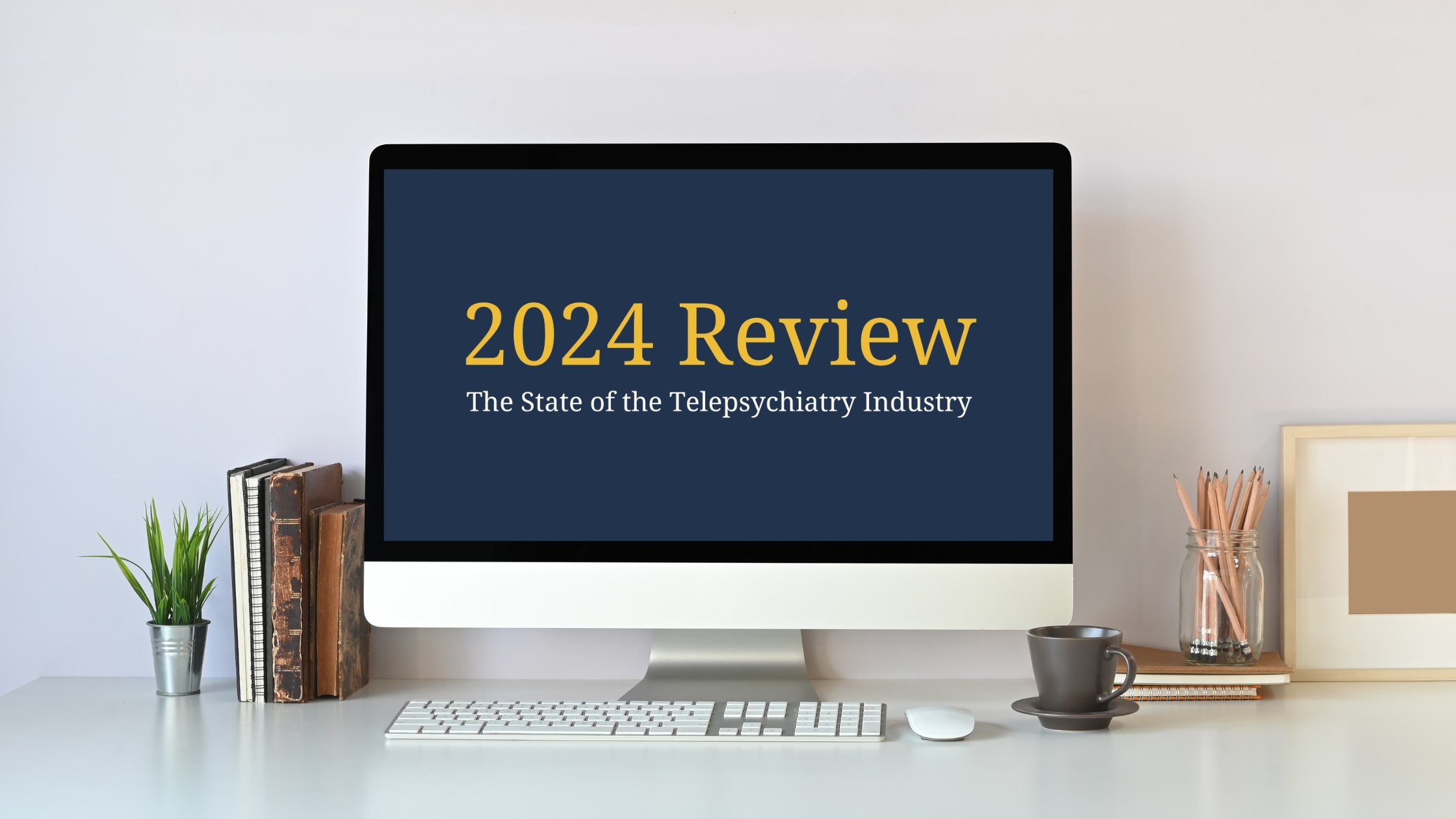Iris Telehealth acquires innovaTel Learn more
2024 Review: Acceptance And Validation Fuel Telepsychiatry Adoption
December 17, 2024 | Industry Spotlight

Whole calendar years tend to fly by, and 2024 has not been any different. Before the year changes over to 2025, there’s value in benchmarking where the telepsychiatry industry is, how it has progressed over the past 12 months and consider where it may find itself in the year ahead.
For that, Dr. Robert Wilson — innovaTel’s co-founder and senior vice president of clinical quality — offered some reflections and projections as 2024 winds down.
Notably, milestones in the industry have been a long time coming, particularly when it comes to the level of acceptance that patients, clinicians, regulators and providers have demonstrated towards the practice of telepsychiatry. Nearly five years removed from the onset of the COVID-19 pandemic, Dr. Wilson said that window of time has shown that telepsychiatry is not only effective as a short-term substitute for in-person care in the event of a large-scale crisis, but it is effective over the long haul.
“It’s no longer this ‘out there’ thing. It’s become standard,” Dr. Wilson said of telepsychiatry. “People find that it works and it’s comfortable, from both the patient side and the provider side, and it’s from an overall acceptance over time.”
Time has given patients, clinicians and providers an opportunity to try telepsychiatry and ultimately accept it as a viable option for treatment. And with that acceptance and practice has come validation, further underscoring the qualitative feeling that telepsychiatry is working with quantitative data that illustrates it.
“There are multiple reports, one after the other, that it’s effective,” Dr. Wilson said of telehealth as a whole. “The outcomes are just as effective as traditional modalities, particularly in the mental health space.”
Telehealth, and within it telepsychiatry, is now viewed a bit differently from a patient perspective. It used to be reserved specifically for care deserts, where providers were scarce and treatment was hard to come by, but it’s become more of a factor of convenience for many, even when in-person care is readily available.
“People find that telehealth saves them time,” Dr. Wilson said. “And, it’s still very important to get services to places that need it. There aren’t enough providers in many specialities. And when you don’t have the clinicians to meet the need in person, the only way to get it delivered is directly where you live.”
As the pandemic continues to fade from immediate view, Dr. Wilson said the telehealth industry — including the telepsychiatry industry — is seeing a consolidation of service providers. Where some providers offered on-demand treatment services, Dr. Wilson said most patients prefer seeing a consistent provider at each visit, and industry consolidation is supporting that preference.
In addition, he said he is seeing a move towards more value-based care. Dr. Wilson said this philosophical and practical shift prioritizes the delivery of treatment when it’s needed, before a condition deteriorates and potentially costs more to treat.
“This requires that the service is available to meet the need,” he said.
Looking ahead, outside of a continued increase in demand for care, Dr. Wilson expects 2025 to include even more acceptance and validation of telepsychiatry practices with the potential for unforeseen regulatory changes to create some bumps in the road. The most concerning, which involves the prescribing of controlled substances through telepsychiatry, has already been approved for another year.
“Other rules could expire through Medicare that could cause problems if they aren’t extended, but the work is in place and the expectation is that those extensions will happen. We’re doing our best to stay on top of everything” he said. “Otherwise, we could see continued growth. We’ve worked traditionally in care deserts, but we’re also finding that large health systems are struggling to meet the needs for mental health services even in large areas, so we’re moving into that area to help.”
To better understand how a partnership with innovaTel works, explore the services we offer and the unique approach we take to improve access to care, here.
Newsletter sign up
Internet Explorer is no longer supported.
Please use a different browser like Edge, Chrome or Firefox to enjoy a full web experience.
It's easy to make the switch.
Enjoy better browsing and increased security.
